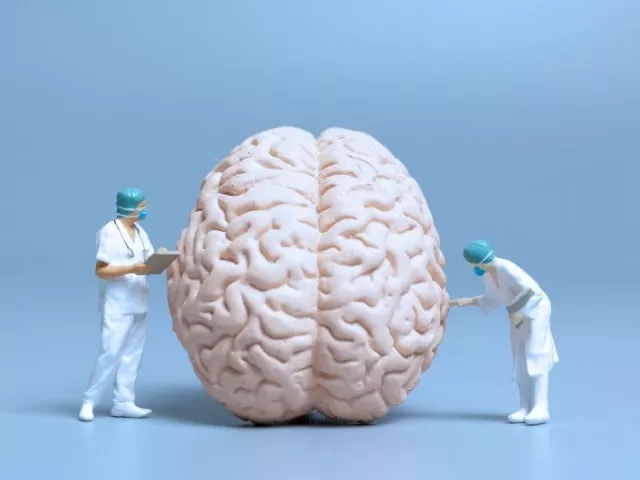Keeping your brain active to enhance memory, focus, and overall cognitive function is crucial for many seniors. However, individuals of all ages can gain from integrating a few easy mental exercises into their routines. Just like any other part of the body, the brain requires regular care and attention to stay in top shape.
Dive in to discover various brain exercises and their benefits.
Research indicates numerous methods to sharpen your mental acuity and maintain brain health, regardless of your age. Engaging in specific brain workouts can improve memory, concentration, and focus, making everyday tasks easier and keeping your mind agile as you age.
Let's explore 13 scientifically-backed exercises that provide the best cognitive benefits. Remember, constantly staring at your phone and prolonged screen time can be detrimental to your brain health, so it's essential to balance screen use with these exercises.

Dr Wendy Suzuki is a Professor of Neural Science and Psychology at New York University and the bestselling author of books such as, 'Good Anxiety' and 'Healthy Brain Happy Life.'
-
Enjoy a Jigsaw Puzzle
Whether you're assembling a 1,000-piece Eiffel Tower or a 100-piece Mickey Mouse, working on jigsaw puzzles is a fantastic way to challenge your brain.
Studies suggest that jigsaw puzzles engage multiple cognitive skills and can protect against visuospatial cognitive ageing. Essentially, figuring out how different pieces fit into a larger picture is a great mental workout.
-
Play a Card Game
When was the last time you played cards? A 2015 study on stimulating activities for adults found that card games can increase brain volume in several regions. Plus, playing cards can enhance memory and cognitive skills.
Try learning one of these classic card games:
-
Solitaire
-
Bridge
-
Gin Rummy
-
Hearts
-
Crazy Eights
-
Expand Your Vocabulary
A robust vocabulary not only makes you sound intelligent but also serves as an excellent brain exercise. Research indicates that vocabulary tasks activate numerous brain regions involved in visual and auditory processing.
To try this, carry a notebook while reading, jot down unfamiliar words, look up their meanings, and use them five times the next day.
-
Dance Like No One’s Watching
According to the Centers for Disease Control and Prevention, learning new dance moves can enhance brain processing speed and memory. So, hit the dance floor and your brain will thank you.
Try these dance activities:
-
Salsa, tap, hip-hop, or contemporary dance classes
-
Zumba or jazz exercise classes
-
Online videos with fun dance moves
-
Engage All Your Senses
A 2015 study suggests that engaging all your senses can help strengthen your brain. Try activities that involve all five senses simultaneously, such as baking, visiting a farmer's market, or dining at a new restaurant.
-
Master a New Skill
Learning something new is not only enjoyable but also strengthens brain connections. A 2014 study shows that acquiring new skills can improve memory in older adults.
Consider learning how to repair your car, use new software, or ride a horse.
-
Teach Someone Else
Teaching a new skill to someone else is a great way to reinforce your learning. After mastering a new skill, practise it and then explain it to someone else, which helps solidify your understanding.
-
Listen to or Create Music
Boost your creative brain power by listening to music. A 2017 study found that happy music can lead to more innovative solutions compared to silence. So, play some feel-good tunes to enhance your creativity.
If you've always wanted to learn an instrument, now is the perfect time. Your brain is capable of learning new skills at any age.
-
Change Up Your Routine
Avoid getting stuck in a rut by trying new ways to accomplish daily tasks. Take a different route to work or use an alternative mode of transport like biking or public transit. Simple changes can stimulate your brain and shift your perspective.
-
Practice Meditation
Daily meditation can calm your body, slow your breathing, and reduce stress and anxiety. It may also improve memory and enhance your brain's information processing abilities. Find a quiet spot, close your eyes, and meditate for five minutes each day.
-
Learn a New Language
Research from 2012 highlights the cognitive benefits of bilingualism, including better memory, improved visual-spatial skills, and increased creativity. Learning a new language can also delay age-related mental decline.
It's never too late to start; learning a new language can boost your brainpower at any age.
-
Try Tai Chi
Tai chi offers numerous health benefits, including mental health improvements. Regular practice can reduce stress, improve sleep quality, and enhance memory. A 2013 study found that long-term tai chi practice increases brain volume.
Beginners should start with a class to learn the movements, but once you have the basics down, you can practise tai chi anywhere.
-
Focus on Observations
Next time you're with someone, note four things about them, such as their shirt colour, whether they're wearing glasses, or the type of hat they have. Later, recall these details and write them down.
Prioritising brain health can enhance concentration, focus, memory, and mental agility at any age.
By incorporating these brain exercises into your daily routine, you'll challenge your mind, sharpen cognitive skills, and possibly discover something new and enriching.









COMMENTS
Comments are moderated and generally will be posted if they are on-topic and not abusive.
For more information, please see our Comments FAQ